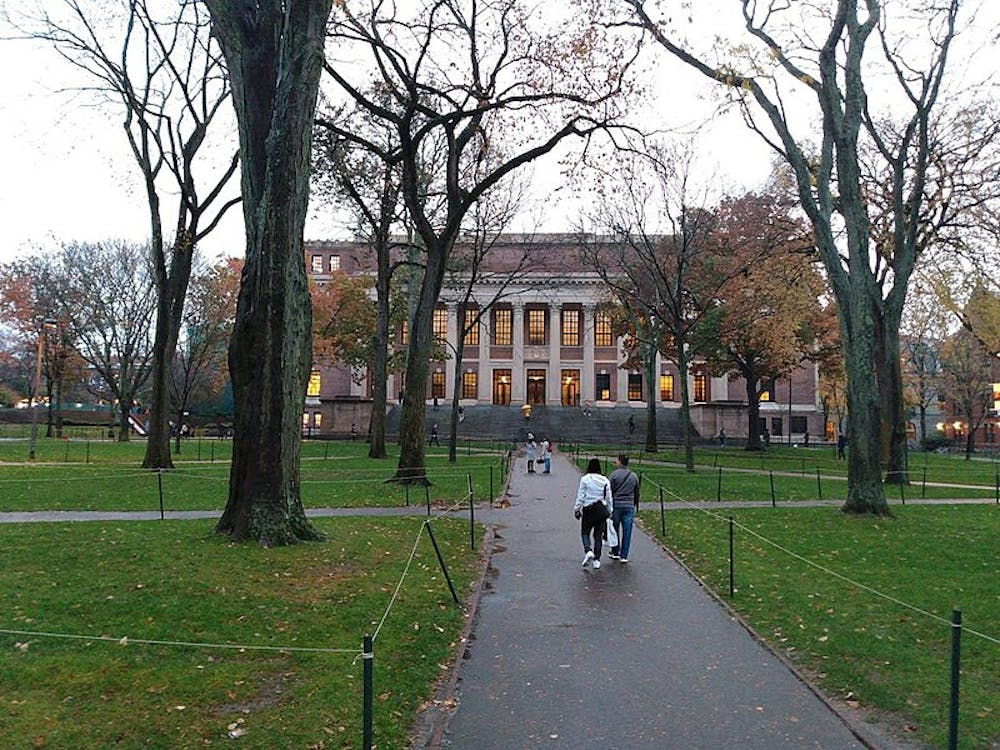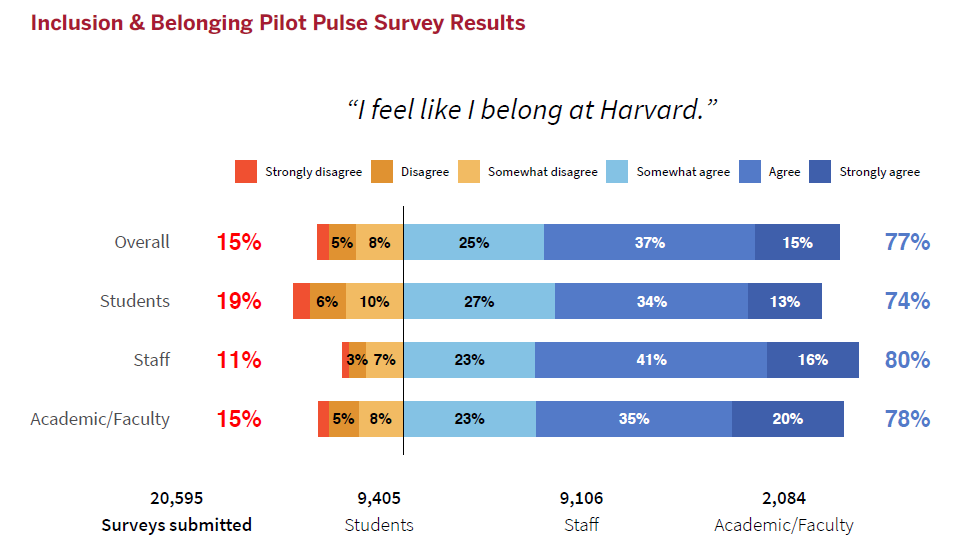Antisemitism at Harvard has become a pressing issue, prompting President Alan M. Garber to announce new initiatives aimed at combatting both antisemitism and anti-Israeli bias across the campus. This response comes in light of findings from the recent report by the Presidential Task Force on Combating Antisemitism and Anti-Israeli Bias, which highlighted the increased discomfort and alienation felt by Jewish students. These initiatives focus on fostering Jewish student support and encouraging constructive campus dialogue while promoting diversity and inclusion within the academic community. By addressing these issues, Harvard seeks not only to improve the college environment for Jewish students but also to cultivate a more respectful and understanding discourse surrounding Israel. The efforts outlined aim to create a vibrant campus where all students feel valued and able to express their identities freely.
The ongoing challenges of prejudice against Jewish students at Harvard reflect a broader struggle against intolerance in academic institutions. Recent discussions surrounding anti-Zionism and hostility toward Jewish culture have highlighted the urgent need for effective measures to combat discrimination. Initiatives designed to enhance inclusivity and support for Jewish life on campus are essential to rejuvenate the curriculum and student interactions. As part of a concerted effort to address bias in educational settings, Harvard aims to create an environment that nurtures open dialogue and respects differing viewpoints. By embracing diversity and establishing proactive measures, the University seeks to foster a climate where every student feels a sense of belonging.
Combatting Antisemitism at Harvard: New Initiatives
In a pivotal move towards addressing the rise of antisemitism on campus, Harvard University recently announced a series of initiatives aimed at fostering a more inclusive and supportive environment for Jewish students. President Alan M. Garber outlined these initiatives in conjunction with the release of the final report from the Presidential Task Force on Combating Antisemitism and Anti-Israeli Bias. This response is not merely a reaction to isolated instances but a comprehensive strategy to cultivate community dialogue and ensure that all students feel a sense of belonging. Key areas targeted include promoting respectful discourse and revising university policies to effectively combat anti-Jewish sentiment.
The task force’s report emphasizes the importance of nurturing diverse perspectives while challenging both explicit and implicit biases. By implementing viewpoint diversity initiatives and dedicating resources for research on antisemitism, Harvard aims to create a safe and empowering environment for Jewish students. Moreover, through enhancements to academic rigor and student support systems, the university is committed to reinforcing its dedication to inclusivity. This approach illustrates a robust effort to not only mitigate antisemitism at Harvard but to also set a precedent for other institutions facing similar challenges.
Understanding Anti-Israeli Bias on Campus
Anti-Israeli bias remains a pressing concern within campus communities across the country, and Harvard is no exception. Recent findings from the task force demonstrate that Jewish students, especially those identifying as Zionists, have felt a significant shift in the campus climate in the wake of global events. The rise in anti-Israeli sentiment has contributed to feelings of alienation and the suppression of honest dialogue surrounding Israeli practices and policies. Addressing this issue, the task force advocates for a reevaluation of academic offerings and campus programming to foster an honest, balanced discourse about Israel and Palestine, ensuring all voices are equally heard and respected.
The task force’s findings suggest that addressing anti-Israeli bias is integral not only to Jewish students’ experience but to the overall academic integrity of Harvard. By encouraging initiatives that promote critical thinking and respect for differing viewpoints, the university can counteract existing biases and advance a culture of constructive dialogue. Such measures are crucial in enabling students to express their viewpoints freely, fostering an academic environment that prioritizes mutual respect over division and hostility.
Enhancing Jewish Student Support at Harvard
The support of Jewish students at Harvard has emerged as a cornerstone of the university’s strategy to combat antisemitism and foster an inclusive campus atmosphere. The initiatives announced by President Garber include direct resources for students who experience antisemitism, reflecting a commitment to addressing their unique challenges. By creating safe spaces for Jewish students to engage in meaningful dialogue and express their identities without fear, Harvard aims to mitigate feelings of alienation and promote a strong sense of belonging within the campus community.
In addition to immediate support measures, the university is focusing on long-term strategies to enhance Jewish student life. This encompasses not only improving religious life on campus but also ensuring student organizations can operate without inadvertently contributing to antisemitic or anti-Israeli sentiments. Harvard recognizes that empowering Jewish students through supportive programs and resources will not only help counter antisemitism but will also enrich the fabric of the university as a whole, reinforcing its commitment to diversity and inclusion.
Fostering Campus Dialogue and Inclusion
Fostering a culture of open dialogue on campus is essential in addressing the challenges posed by antisemitism and biases against Israel. The task force’s initiatives aim to create an environment where students can engage in discussions about complex issues without fear of backlash. By promoting educational programs that emphasize respect and understanding across diverse perspectives, Harvard seeks to ensure that all students, particularly those from marginalized backgrounds, feel empowered to express their thoughts and experiences.
Through structured dialogues and collaborative learning experiences, the university not only aims to educate its community about antisemitism but also facilitates conversations that bridge divides. These initiatives will contribute significantly to creating an inclusive campus where students can navigate their differences constructively, fostering a sense of shared community among diverse groups and enhancing the overall educational experience.
Recommendations for Diversity and Inclusion Policies
In its report, the task force outlines critical recommendations for Harvard’s diversity and inclusion policies, focusing on creating a more holistic environment conducive to the understanding of varying identities and experiences. This includes revising admissions processes and curricular offerings to emphasize the university’s commitment to diversity. The aim is not only to attract a more varied student body but also to ensure that current students receive an education that is enriched by multiple perspectives.
The task force suggests that by embedding discussions of Jewish culture and history, including the Holocaust and the Israeli-Palestinian conflict, within the wider academic framework, Harvard can combat bias effectively. This will not only empower Jewish students but also promote a broader understanding of these complex issues among the entire student population, ultimately nurturing a climate of inclusivity and respect.
Expanding Harvard Initiatives Against Discrimination
The initiatives announced by Harvard extend beyond just addressing antisemitism to encompass broader strategies against discrimination in all its forms. This proactive approach recognizes the interplay between antisemitism, anti-Israeli bias, and other forms of bias prevalent on campuses today. These new measures advocate for the implementation of educational programs aimed at dispelling myths and misconceptions about different cultures and communities, particularly those underrepresented in academic discourse.
Furthermore, the assessment of policies and procedures regarding discrimination cases will undergo significant revision to ensure fair treatment and responsiveness to incidents of bias. By prioritizing systemic changes, Harvard reflects its commitment to fostering a healthy academic environment free from discrimination and focused on mutual understanding.
The Role of Faculty and Staff in Combating Bias
Faculty and staff play a crucial role in cultivating an environment of acceptance and respect within the academic space. The task force emphasizes the need for enhanced training for faculty to identify and respond to incidents of antisemitism and anti-Israeli bias. This initiative seeks to equip educators with the tools necessary to navigate these sensitive topics effectively and model the respectful, open discourse that Harvard strives to foster among its students.
By strengthening academic oversight and encouraging instructors to engage with diverse perspectives in their teaching, Harvard aims to instill a culture where bias is actively challenged rather than tolerated. This shift will not only benefit Jewish and Israeli students but also contribute to a richer, more nuanced educational experience for all students, inspiring future leaders to engage thoughtfully with complex global issues.
Implementing Effective Complaint Mechanisms
A significant focus of the task force is the development of robust complaint mechanisms that allow for the effective reporting and addressing of incidents related to antisemitism and other forms of discrimination. These mechanisms aim to ensure that complaints are handled promptly and fairly, guiding the university toward a more responsive approach to bias and discrimination. Providing clear and accessible pathways for students to voice their concerns is vital in restoring trust within the community.
Moreover, the establishment of a comprehensive oversight system will enhance the accountability of response measures to reported incidents. By integrating these mechanisms with educational initiatives, Harvard can promote a culture that encourages individuals to speak out against biases while knowing that their experiences will be taken seriously and addressed properly.
A Historical Perspective on Jewish Life at Harvard
The historical context of Jewish life at Harvard contributes significantly to understanding the current challenges faced by Jewish students. The task force’s comprehensive analysis covers the experiences of Jewish individuals at Harvard from the 1920s to the present, highlighting how shifting societal attitudes and world events have impacted Jewish students’ sense of belonging. This historical lens underscores the importance of learning from past challenges to inform contemporary policies and practices.
By examining the evolution of Jewish identity and experiences within the university’s environment, Harvard can more effectively address issues related to bias and discrimination today. Understanding this history not only empowers current students by reaffirming their place within the academic community but also encourages ongoing dialogues about inclusion and respect across diverse backgrounds.
Frequently Asked Questions
What initiatives is Harvard implementing to combat antisemitism at Harvard?
Harvard is launching several new initiatives to combat antisemitism and anti-Israeli bias following the report from the Presidential Task Force. Key actions include promoting viewpoint diversity, increasing support for Jewish student organizations, revising disciplinary policies, and enhancing resources that address antisemitism directly.
How does anti-Israeli bias manifest within the Harvard community?
Anti-Israeli bias at Harvard can manifest through hostile rhetoric in academic settings, negative perceptions related to Israel and Palestine discussions, and a diminished sense of belonging among Jewish and Israeli students, particularly after significant world events that heighten tensions.
What recommendations has the Task Force on Combating Antisemitism at Harvard proposed?
The Task Force recommends enhancing educational offerings focused on Jewish civilization, implementing antisemitism and anti-Israeli bias training, fostering respectful dialogue among students, and strengthening support systems for Jewish students, ensuring their voices are included in campus conversations.
How are Harvard’s new initiatives designed to support Jewish students?
Harvard’s new initiatives aim to create a more inclusive environment for Jewish students by providing additional resources for those who experience antisemitism, revising curricula to include diverse perspectives on Israel, and ensuring that all students feel safe to express their opinions without fear of backlash.
What role does campus dialogue play in addressing antisemitism at Harvard?
Campus dialogue is crucial in addressing antisemitism at Harvard, as it promotes respectful engagement and understanding among diverse student groups. Tenants of the new initiatives emphasize constructive discussions that allow all voices to be heard, fostering a culture of inclusion.
How is Harvard assessing the effectiveness of its policies on antisemitism?
Harvard is reviewing its policies related to antisemitism and anti-Israeli bias through ongoing evaluations of student experiences, listening sessions, and the implementation of recommendations from the Task Force to create a fair and effective disciplinary process.
What measures is Harvard taking to ensure diversity and inclusion in relation to antisemitism?
To ensure diversity and inclusion, Harvard is implementing policies that promote open inquiry and mutual respect, increased representation in academic offerings, and supportive initiatives for Jewish life on campus, ultimately aiming to foster a pluralistic learning environment.
How can Jewish students at Harvard find support against antisemitism?
Jewish students at Harvard can access support through various campus resources, including student organizations focused on Jewish life, counseling services, and programs designed to address antisemitism and ensure their perspectives are recognized in community discussions.
What historical context is important for understanding antisemitism at Harvard?
Understanding antisemitism at Harvard includes recognizing the historical challenges faced by Jewish students, the influence of world events on campus climate, and the decline of civil discourse regarding Israel and Palestine, which has shaped the current experiences of Jewish individuals on campus.
How is Harvard fostering constructive dialogue on Israel and Palestine?
Harvard is fostering constructive dialogue on Israel and Palestine by emphasizing academic integrity, supporting events that encourage diverse viewpoints, and implementing trainings for students and faculty to engage in respectful and informed discussions around complex issues.
| Key Area | Actions Taken | Goals |
|---|---|---|
| Nurturing Belonging and Dialogue | Launch major initiative to promote viewpoint diversity; expand resources for students experiencing antisemitism. | Foster an inclusive environment where all voices are respected. |
| Policy Revisions and Training | Revise and implement policies; review disciplinary procedures. | Ensure fair and effective handling of discrimination cases. |
| Strengthening Academic and Residential Life | Review academic offerings and student experiences for bias; improve support for Jewish life. | Create a balanced academic environment where diverse opinions can be expressed safely. |
Summary
Antisemitism at Harvard has prompted the university to launch new initiatives aimed at combating bias against Jewish and Israeli individuals. In a recent announcement by President Alan M. Garber, the university outlined comprehensive actions based on a task force’s report focused on improving the climate for Jewish students. These measures include revising policies, enhancing support systems, and promoting respectful dialogue amongst the community. Through these steps, Harvard aims to foster a more inclusive atmosphere that respects and safeguards diverse expressions of identity, ultimately working towards a future free of discrimination.




